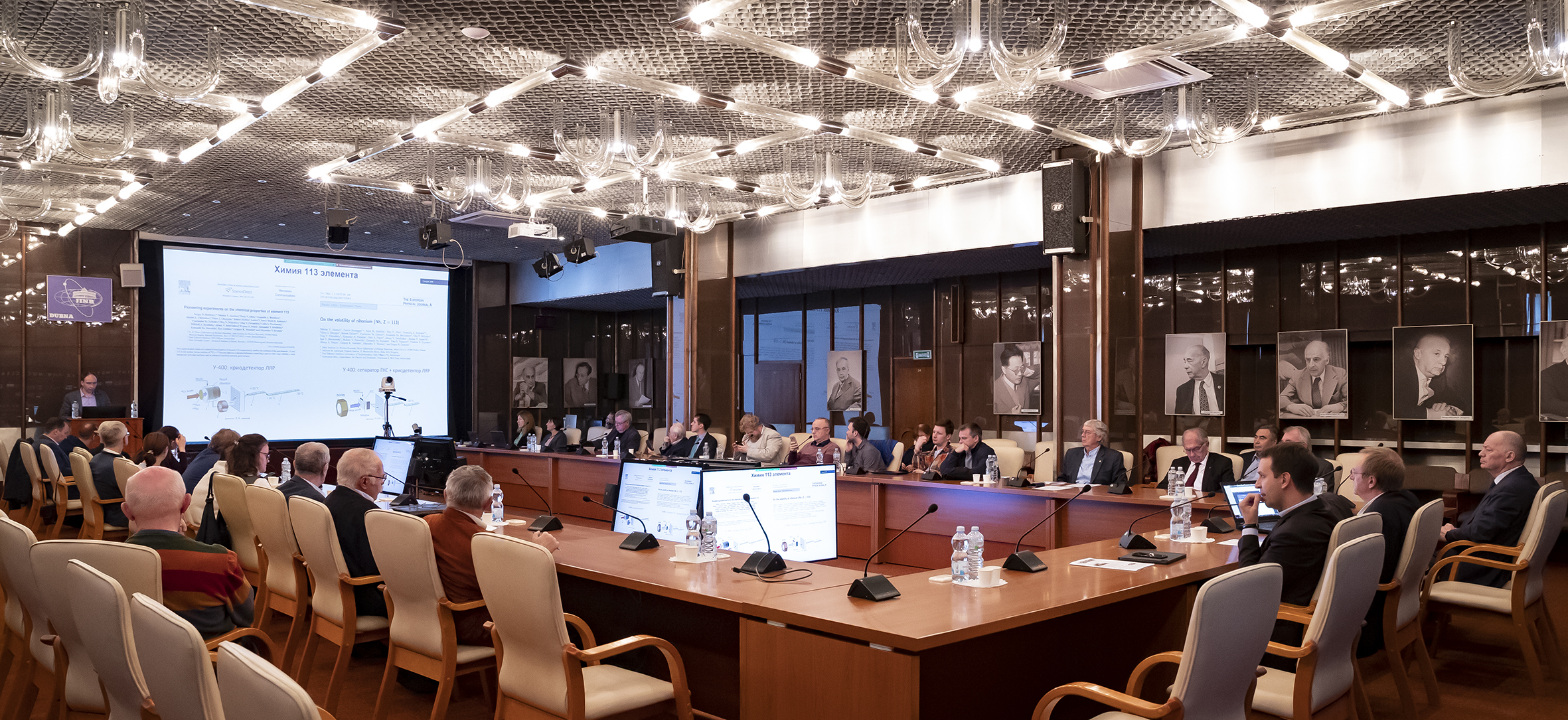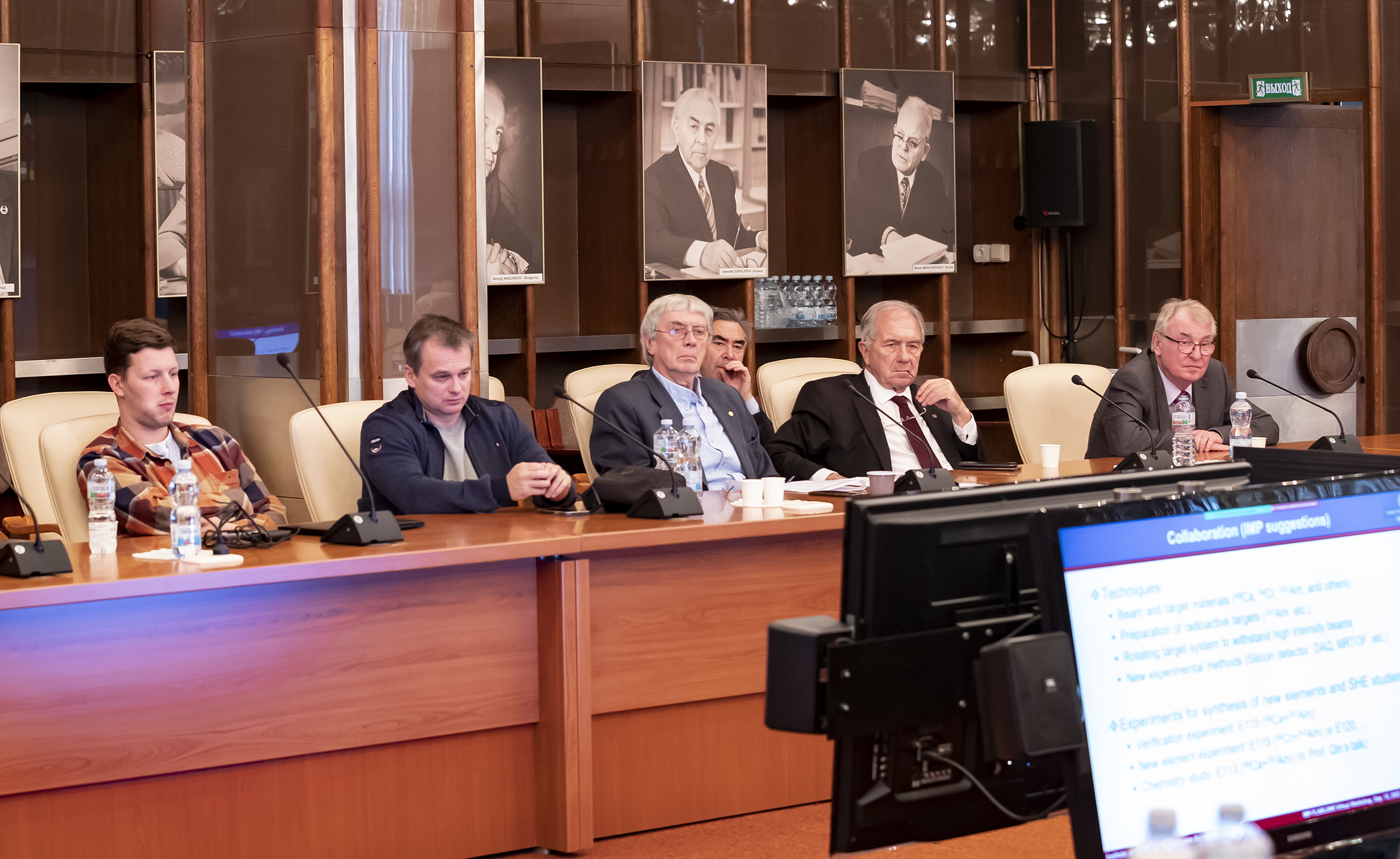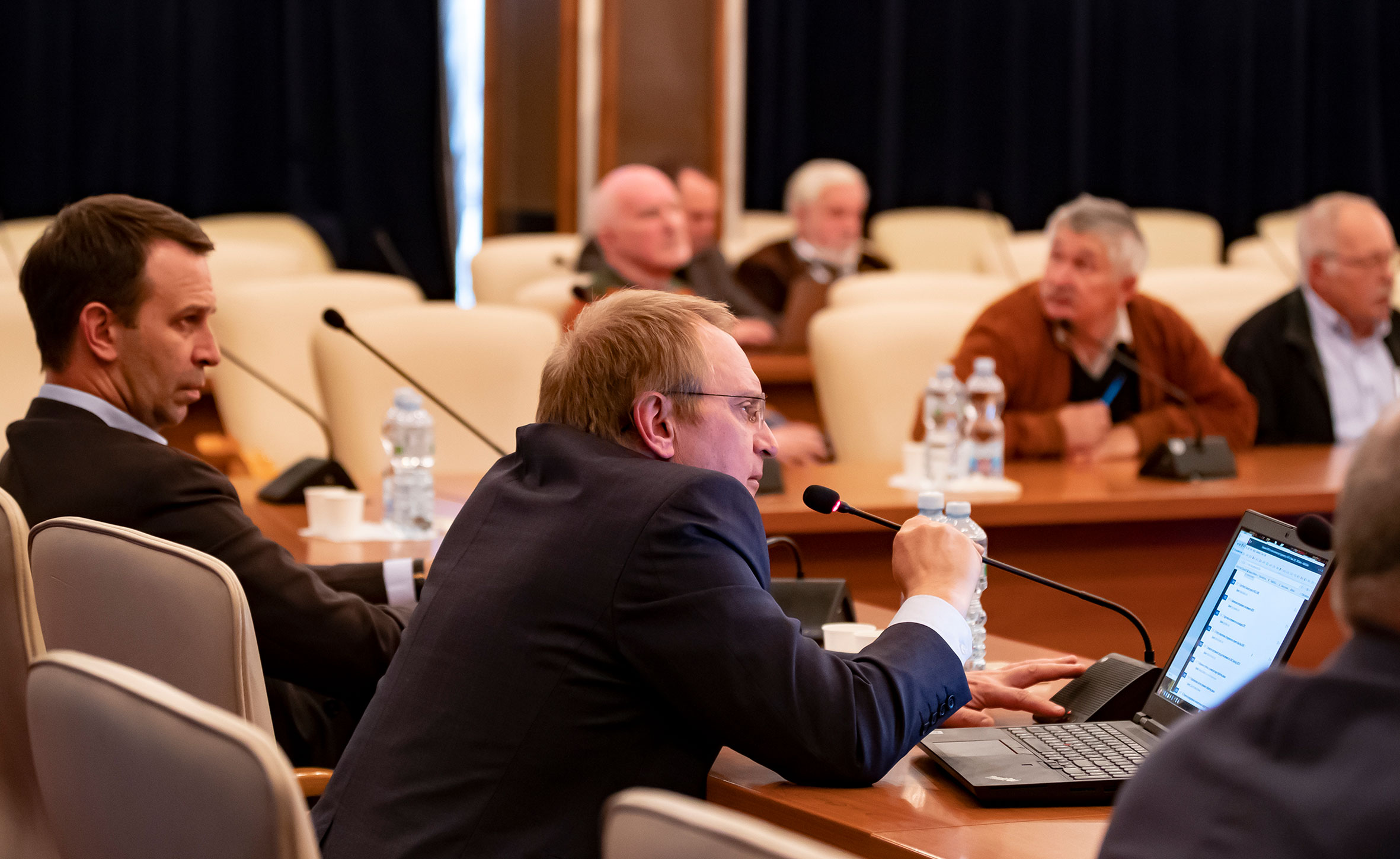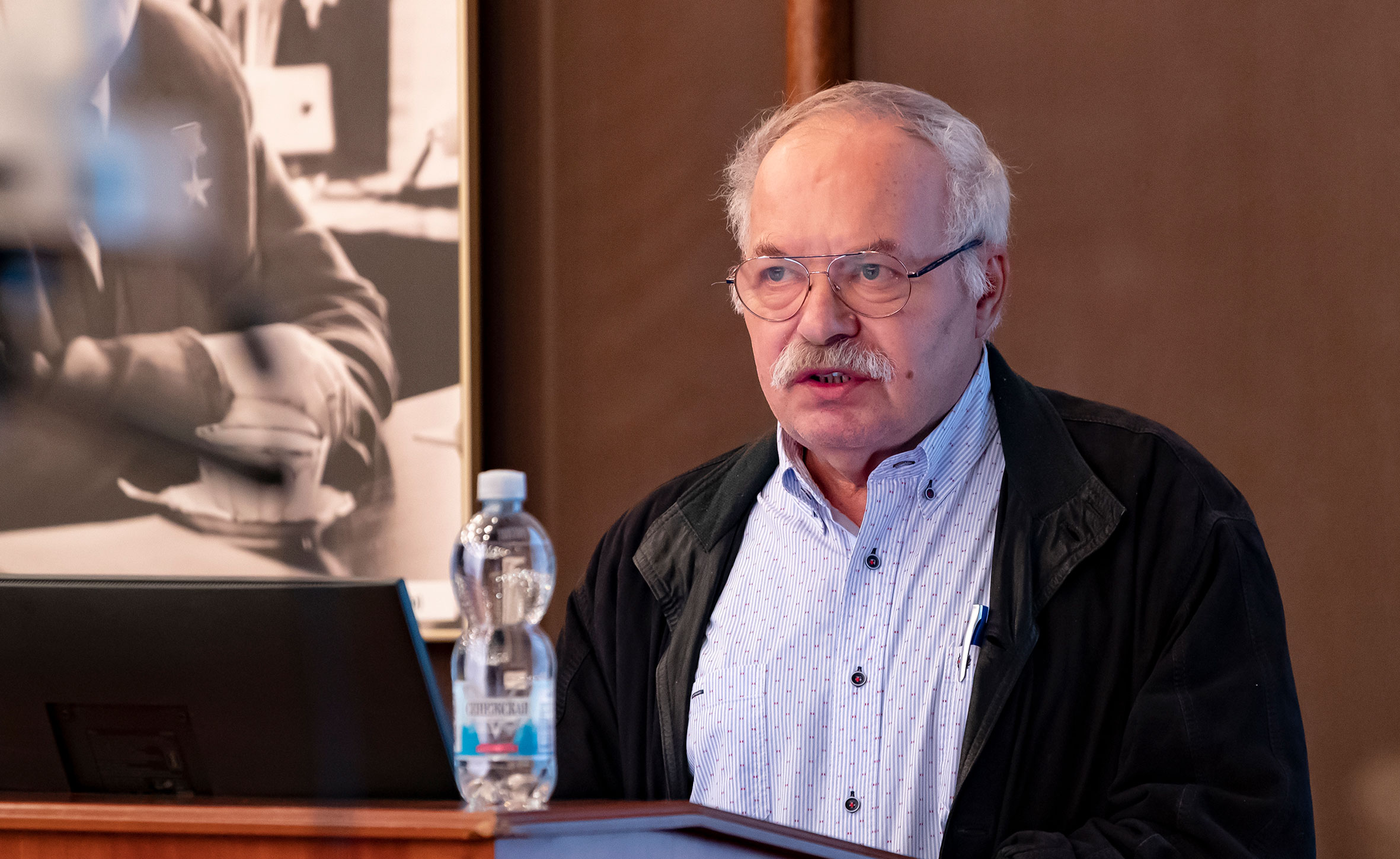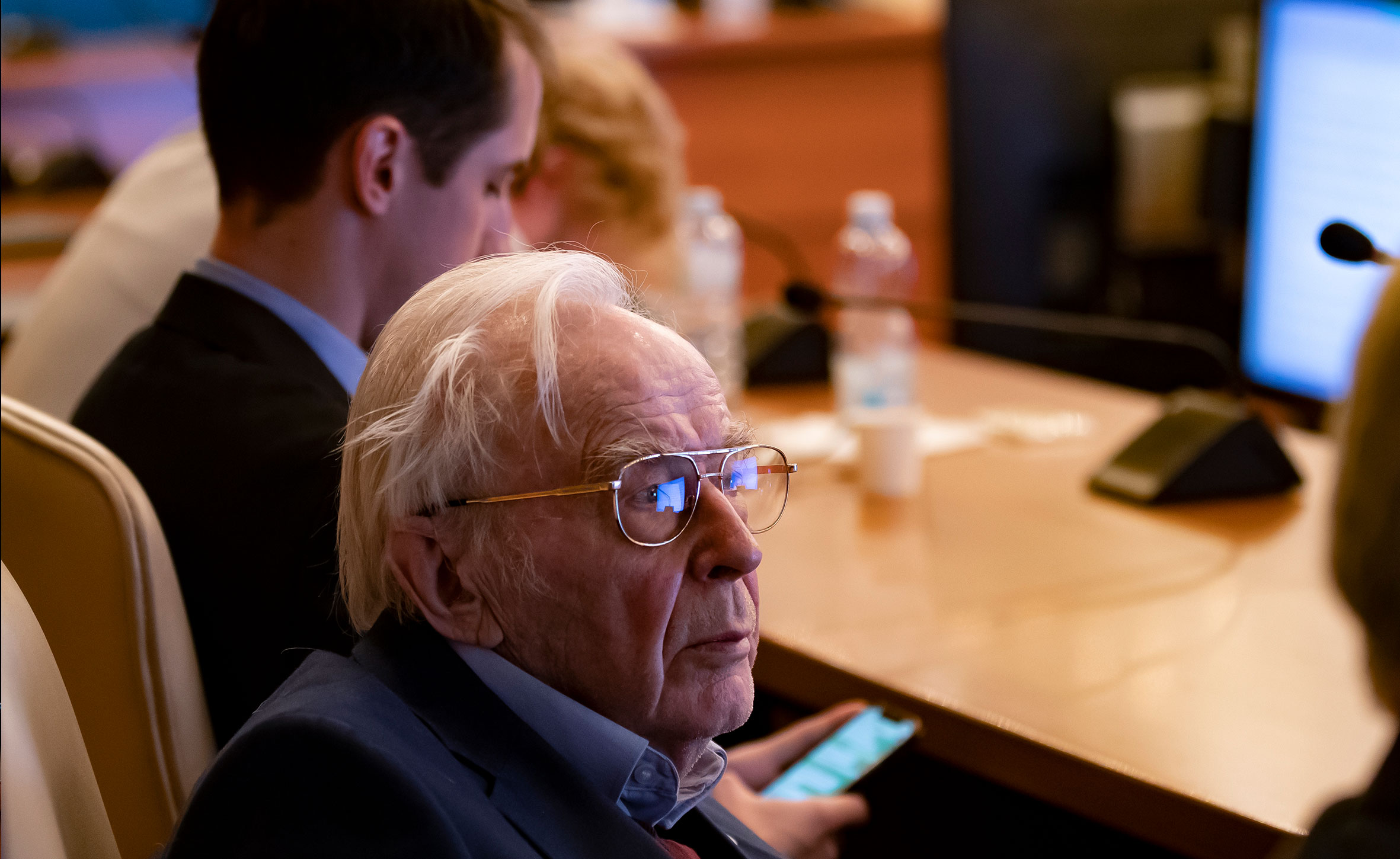Status of cooperation with China
News, 17 October 2022
On 13 October, the current state and prospects of scientific and technical cooperation with the People’s Republic of China were discussed at the Joint Institute. It was noted that the need to develop this cooperation had increased.
“Attracting new major partners is one of the priorities incorporated in the Institute’s strategic development documents. China has great prospects for JINR and considerable potential. The members of the JINR Scientific Council highlighted the need to promote cooperation with this country during the September session,” JINR Director Grigory Trubnikov stressed.
Representatives of the Institute’s laboratories delivered presentations on current cooperation with Chinese scientific organizations and the prospects for its development at the meeting. Participants of the international scientific collaborations in JINR and China spoke about their mutual involvement in the scientific projects of these collaborations.
The Laboratory of Nuclear Reactions is interested in developing cooperation with the Institute of Modern Physics of the Chinese Academy of Sciences (Lanzhou) in the field of new ion sources. Measuring the masses of superheavy element nuclei is a task that no one in the world has yet tackled. It can become a promising subject for joint work. The study of the chemical properties of SHE, in particular element 113, is of great interest.
The Laboratory of Theoretical Physics has a long experience of cooperation with China. The agreement with the Institute of Theoretical Physics of the Chinese Academy of Sciences in 2009 gave a new impetus to this cooperation. Joint meetings are held annually in a number of directions in nuclear physics and hadron physics. The possibility to organize a theoretical research programme as part of the NICA Megascience Project is of mutual interest.
The issue of joint participation in major international projects between JINR and PRC was one of the key topics of the meeting. Thus, the NICA Complex is of particular interest in development of cooperation between several laboratories of the Institute and Chinese organizations. A serious platform for strengthening cooperation is the agreement on the participation of Chinese scientists in NICA signed in 2019. The Chinese party is actively engaged in projects in the fields of accelerator technology and detector creation. Two Chinese organizations, Tsinghua University and the China Institute of Atomic Energy, have joined the SPD collaboration. Tsinghua University has been involved in the NICA project for about ten years. Its specialists construct SPD time-of-flight detector and work together on an electromagnetic calorimeter for MPD. The Institute of Atomic Energy is interested in cooperation on the SPD Project to develop Micromegas detectors. An important area of joint work is the development of microelectronics for the NICA Project.
JINR scientists, in turn, are heavily involved in Chinese research projects. These include the BES III Project, the CEPC Collider, and participation in the JUNO/DayaBay Neutrino Project.
The MSC-230 cyclotron which is under construction at the Institute might become a new area for cooperation. There is great mutual interest in the joint development of HF systems, resonators, and magnet for the accelerator.
An agreement on cooperation between JINR, Peking University, and the Institute of Atomic Energy was signed in 2005 on the research topics of the Laboratory of Neutron Physics JINR. Joint research on fast neutron cross sections is being now conducted. Since 2018, Chinese colleagues have joined the TANGRA project. Since 2016, the ISINN international workshop on neutron-nuclear interactions has been held alternately in JINR and China. Collaborative work was carried out in the framework of the IBR-2 user programme.
Radiation research and information technology were also highlighted as promising areas of cooperation.
The participants of the meeting stressed the need to attract young Chinese JINR specialists in schools and internships for students and young scientists in the framework of the postdoc programme of the Institute.
The meeting highlighted the diversity and scale of the current cooperation between almost all of the Institute’s laboratories and research organizations and universities of the PRC and the great potential for the development of this cooperation. JINR Director proposed to establish a working group that would identify the most promising topics and projects. A joint online meeting of JINR and interested Chinese scientific organizations will be prepared in the near future to discuss both research and scientific-organizational issues with the aim of harmonizing the cooperation between JINR and China with its scale and multidisciplinary character.
